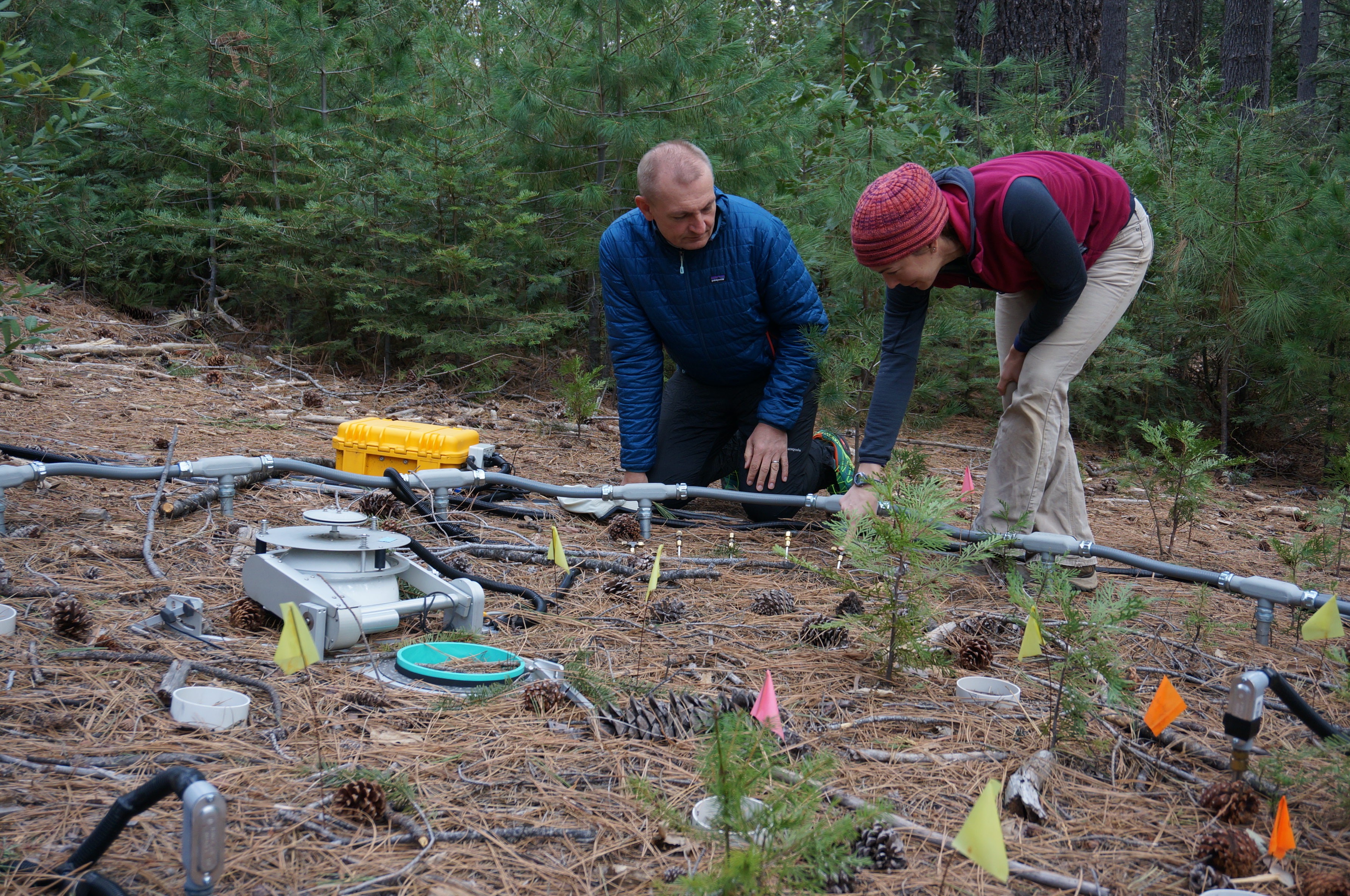Navigation auf uzh.ch
Navigation auf uzh.ch

Funding:
SNF October 2017 - September 2021
Link: Deep C
Project partners:
Prof. Dr. Michael W.I. Schmidt email
PD Dr. Guido L. B. Wiesenberg email
Dr. Samuel Abiven email
UZH collaborators:
Dr. Emily Solly , Postdoc, email
Nicholas E.O. Ofiti, PhD candidate, email
Cyrill Zosso, PhD candidate, email
External project partners
Dr. Paul Hanson (Oak Ridge National Laboratory, USA), Link
Prof. Dr. Margaret Torn (Lawrence Berkeley National Laboratory, USA)Link
The project on below ground carbon cycling DEEP C aims to answer the fundamental question what the role of soils will be in terrestrial feedbacks to warming over the next century.
The warming of planet Earth will be accelerated if soil organic carbon (SOC) is lost to the atmosphere as greenhouse gas. Representations of this positive carbon-cycle-climate feedback are part of many climate projections, but there is little experimental evidence. The project takes advantage of three multi- year deep soil warming field experiments maintained by the US Department of Energy as part of long-term Scientific Focus Area projects. These sites represent three biomes: Mediterranean grassland, Temperate forest, and Boreal forested peat. We will use the rapidly evolving methodological development of isotopic labeling and molecular markers to resolve dynamics as root-microbial-mineral interactions.
For the first time, we will combine multi-year, deep soil warming, molecular markers and isotopic labeling in functionally different SOC pools, to explore how the soil-plant system responds to a +4°C warmer world. We will find out if allocation between above and below ground plant biomass will change. And if deeper in the soil profile, new mineral sorption sites will be filled, potentially stabilizing SOC for longer. Will warming favor bacteria over fungi and consequently the build-up of bacterial necromass deeper in the profile? Ultimately, we want to integrate our results into the next generation of vertically-resolved SOC models as tools for understanding and predicting soil biogeochemical response to global change.